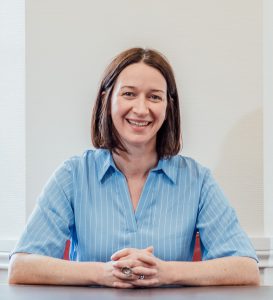
Dr Ailbhe Kenny is an Associate Professor of Music Education at Mary Immaculate College, University of Limerick, Ireland, where she directs the MA in Music Education. Ailbhe’s research is widely published internationally; she is author of Communities of Musical Practice (2016) and co-editor of Musician-Teacher Collaborations: Altering the Chord (2018). Her research consistently demonstrates a fascination with diverse socio-musical spaces, ‘communities of musical practice’ and teacher-artist partnerships. She is a Fulbright Scholar, EURIAS fellow, Irish Research Council Laureate and holds a PhD from the University of Cambridge. Ailbhe is currently a PI on the HERA-funded project ‘Night Spaces: Migration, Culture and Integration in Europe’ (2019-22) and IRC-funded ‘Music in the Intercultural School: Uncovering Spaces for Agency and Belonging’ (2022-26).
How did you get involved in the FUTURED project?
Prof Catharina Christophersen and I have been academic collaborators for many years. I was delighted to join the FUTURED project as an international guest researcher to further extend this work and join other academics in tackling important issues in our field.
How would you describe what you are doing in the FUTURED project?
I am involved in WP3 in exploring how multi-professional collaborative teaching can be developed between teachers, student music teachers and musicians within classrooms. This work involves critical analysis and interpretation of fieldwork data, robust academic debates and discussions, as well as co-writing projects. As a guest researcher, one of my most important jobs on the project is to provide an external perspective on the project and its findings.
What do you find interesting about the work in your study?
FUTURED is an urgent project in many ways. It forces us to ask both philosophical and practical questions about the future direction of music education at a time of increasing change and instability. The project problematises what is important, what is not, and how music education can address macro issues such systemic inequalities, power, agency and identity.
What is your favourite aspect of your FUTURED work?
My favourite aspect of working with FUTURED is the opportunity for critical academic discussions with leading researchers in the field. I find such exchanges incredibly stimulating. The project has provided vital time and space for this to happen within busy schedules in order to think about ‘big picture’ issues and hopefully effect meaningful change as a result.
This interview is taking place in the last year of the project. Where are you headed in the future?
I will continue to co-write with the FUTURED researchers as part of the ongoing dissemination from the project. The learning from the project will continue to influence my own work too as music education in Ireland faces similar challenges into the future.